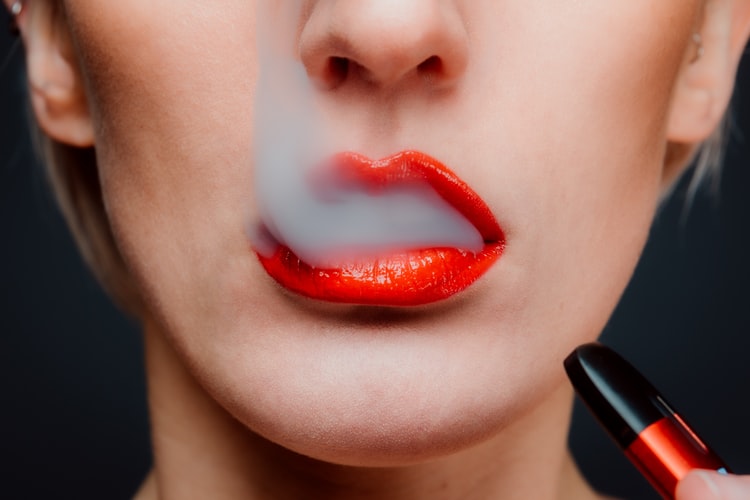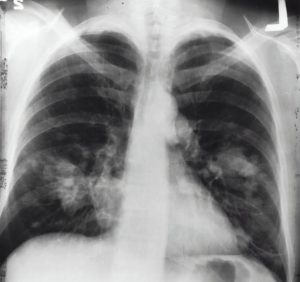Study Shows How EVALI Pushed E-cigarette Users Back to Smoking
A new study that analyzed the effects of a Massachusetts bill inspired by the EVALI epidemic of 2019 found that the state’s hard stance on vaping pushed people back to smoking.
 Looking at the current state of vaping in the US, I think it’s fair to say that the 2019 EVALI crisis and the way it was covered by both the mainstream media was the beginning of the end. Everyone was blaming e-cigarettes for killing dozens of people and putting hundreds others in hospitals all around the United States, even though something was clearly wrong with that picture. Vaping had been around for over a decade at that point, and we had never seen such cases of lung damage before.
Looking at the current state of vaping in the US, I think it’s fair to say that the 2019 EVALI crisis and the way it was covered by both the mainstream media was the beginning of the end. Everyone was blaming e-cigarettes for killing dozens of people and putting hundreds others in hospitals all around the United States, even though something was clearly wrong with that picture. Vaping had been around for over a decade at that point, and we had never seen such cases of lung damage before.
As weeks passed in the fall of 2019, it was becoming clear that nicotine-based e-liquid wasn’t the cause of this “epidemic”, and in the end even the CDC acknowledged that vitamin E acetate, a compound found in black market THC cartridges, was “a very strong culprit”. Once those were taken off the market, EVALI stopped being a problem.
Sadly, that wasn’t the end of it. For one, even after the CDC admitted that regular e-liquid wasn’t to blame for the medical crisis, e-cigarette opponents and several media outlets continued to blame electronic cigarettes. Of course, the fact that e-cigs were in the name of this terrible condition (E-cigarette or Vaping-Associated Lung Injury) didn’t help, but it had caught on, and there was no changing it.
By the time the dust settled, the state of vaping in the United States had changed dramatically, and nowhere was this more evident than in Massachusetts, where Governor Charlie Baker cracked down on e-cigarettes hard. Between September and December 2019, a total ban on nicotine and cannabis vapes was enforced, which caused hundreds of small businesses across the state to close, some for good.
But what came next was the proverbial nail in the coffin. As the ban was lifted, the Governor signed a bill that banned e-liquid flavors and menthol cigarettes, and imposed a 75% excise tax on the wholesale price of all electronic cigarettes. The law is still in effect today, and its effects have not benefitted public health in the slightest, at least according to a new study by researchers at Boston University.
In a recent article published by the Harm Reduction Journal, the team of researchers led by Dr. Michael Siegel, a longtime supporter of vaping as a less dangerous alternative to tobacco smoking, analyzed the effects of both the EVALI epidemic and its coverage in the media, as well as those of House Bill no. 4196 on public health.
Dr. Siegel and co-authors Amanda Katchmar, Adrian Gunawan, all from Boston University, conducted an “interrupted time-series analysis of year-on-year consumer purchasing data” on e-cigarettes and tobacco cigarettes in the Greater Boston area and the the entire USA, to see how the EVALI crisis and the tax implementation affected the market.
Photo: Chiara Summer/Unsplash
The authors used data from Nielsen, an research marketing research firm that collects information at point of purchase in many big-chain retailers, grocery stores and major gas stations across the US. Their analysis revealed that e-cigarette purchases decreased significantly while tobacco cigarette purchases increased after several bans on e-cigarettes and policy statements related to the EVALI outbreak.
“We hypothesize that there was a lot of misleading information about the illness,” Dr. Michael Siegel told Filter Magazine. “It was attributed to e-cigarettes, even though as it turns out they had nothing to do with it. As a result, I think that a lot of people actually thought that e-cigarettes were more dangerous than cigarettes.”
“They shut down the entire e-cigarette business in the state for months, and for no justified reason,” Siegel added. “It was, in many ways, the opposite of the COVID pandemic, where a crippling public health crisis forced businesses to close. With EVALI, it was the decision to close the businesses that crippled public health. As a result, I think that a lot of people actually thought that e-cigarettes were more dangerous than cigarettes.”
Interestingly, the authors’ analysis showed that it wasn’t the excise tax implementation that drove people back to cigarettes, it was the EVALI crisis and the way it was covered by both the media and authorities. Unfortunately, vaping never recovered after EVALI, as even today there are those who continue to blame it on e-cigarettes.
While this is the first study to empirically show an uptick in cigarette use following the EVALI episode, it’s certainly not the only evidence of the trend. Reports from Goldman Sachs also showed an increase in tobacco cigarette purchases in 2020, while the e-cigarette market continued to shrink. And as the public perception of vaping continues to worsen as a result of misinformation, this disturbing trend is expected to continue.
















